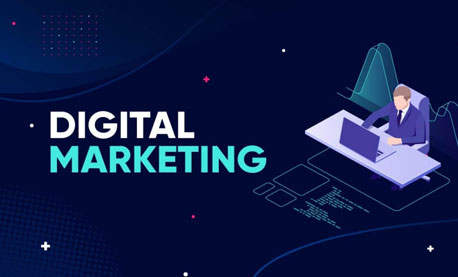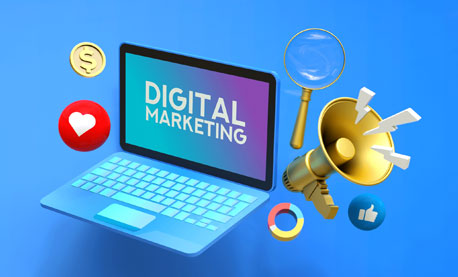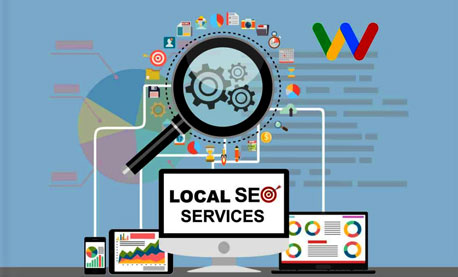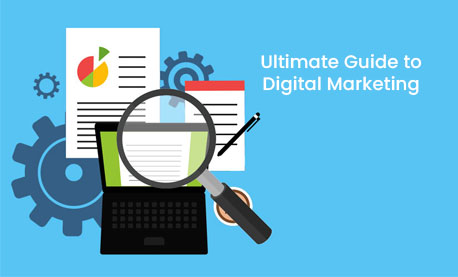Know Branding with Digital Marketing
Digital marketing has become an indispensable tool for businesses around the world, and Bangladesh is no exception. In today’s fast-paced digital age, it is essential to have a strong online presence to stay competitive and reach a wider audience. By harnessing the power of digital marketing strategies, businesses in Bangladesh can elevate their brands, engage with customers, and drive growth. In this article, we will explore the various aspects of digital marketing and how it can help businesses thrive in Bangladesh.
1. Introduction
In this section, we will discuss the importance of digital marketing for brand elevation and provide an overview of the digital marketing landscape in Bangladesh. Bangladesh has witnessed a rapid growth in internet penetration, with a large portion of the population now having access to the internet. This presents a significant opportunity for businesses to leverage digital marketing channels and expand their reach.
2. Understanding Digital Marketing
Before diving into the strategies, it’s crucial to understand the core concepts of digital marketing. Digital marketing encompasses a wide range of activities aimed at promoting products or services through digital channels. These channels include search engines, social media platforms, email, mobile apps, and websites. By utilizing these channels effectively, businesses can connect with their target audience and achieve their marketing goals.
3. Creating a Digital Marketing Strategy
A successful digital marketing campaign starts with a well-defined strategy. In this section, we will explore the steps involved in creating a comprehensive digital marketing strategy. It begins with identifying business objectives and defining the target audience. Conducting market research and competitor analysis helps gain insights into the competitive landscape and consumer behavior. With specific goals and key performance indicators (KPIs) in place, businesses can measure the success of their digital marketing efforts.
4. Website Optimization
A well-designed and user-friendly website is the foundation of a successful digital marketing strategy. This section will focus on optimizing websites for search engines and user experience. Implementing search engine optimization (SEO) techniques, such as keyword research, on-page optimization, and link building, can improve organic search rankings. Additionally, enhancing website performance and user experience through responsive design and fast loading speeds can positively impact visitor engagement and conversion rates.
5. Content Marketing
Content marketing plays a vital role in attracting and engaging the target audience. This section will delve into developing a content strategy aligned with brand goals. Businesses should create high-quality and valuable content that resonates with their audience. This content can take various forms, including blog articles, videos, infographics, and social media posts. Effective content promotion strategies, such as social media sharing and guest blogging, can amplify the reach and impact of the content.
6. Social Media Marketing
Social media platforms offer a vast potential for brand exposure and customer engagement. This section will explore the various aspects of social media marketing. Businesses can leverage popular platforms like Facebook, Instagram, Twitter, and LinkedIn to connect with their target audience. Engaging content, interactive campaigns, and social media advertising can help businesses build a loyal community of followers and drive traffic to their website.
7. Search Engine Marketing (SEM)
While SEO focuses on organic search rankings, search engine marketing (SEM) involves paid advertising on search engines. In this section, we will discuss the benefits of SEM and how to run effective ad campaigns. By conducting keyword research, businesses can identify relevant search terms to target with their ads. Optimizing ad campaigns, monitoring performance, and utilizing retargeting techniques can maximize the return on investment (ROI) from SEM efforts.
8. Email Marketing
Email marketing remains a powerful tool for nurturing leads and fostering customer relationships. This section will explore the best practices of email marketing. Building a subscriber list, segmenting the audience based on demographics or preferences, and personalizing email campaigns can significantly improve engagement and conversion rates. Analyzing metrics like open rates, click-through rates, and conversions helps refine email marketing strategies for better results.
9. Influencer Marketing
Influencer marketing has gained popularity as an effective way to reach a targeted audience through trusted personalities. This section will discuss the role of influencer marketing in brand elevation. By identifying relevant influencers in the industry, businesses can collaborate with them to promote their products or services. Tracking metrics like reach, engagement, and conversions helps evaluate the impact of influencer marketing campaigns.
10. Mobile Marketing
With the increasing usage of smartphones, mobile marketing has become crucial for brand elevation. This section will emphasize the importance of mobile optimization and responsive design. Businesses should focus on creating mobile-friendly websites and utilizing mobile apps to engage with customers. Location-based targeting and SMS marketing can further enhance the effectiveness of mobile marketing campaigns.
11. Analytics and Data-driven Decision Making
Data analytics plays a vital role in digital marketing. This section will highlight the importance of tracking and analyzing digital marketing metrics. By monitoring key performance indicators (KPIs), businesses can gain valuable insights into the effectiveness of their strategies. Data-driven decision making enables businesses to optimize their campaigns, allocate resources effectively, and achieve better results.
12. Overcoming Challenges in Digital Marketing
Digital marketing is not without its challenges. In this section, we will address some common challenges and provide strategies to overcome them. With algorithms and trends constantly changing, businesses need to stay updated and adapt their strategies accordingly. Addressing cybersecurity and privacy concerns is also crucial to maintain trust with customers. Moreover, navigating through a competitive digital landscape requires continuous innovation and differentiation.
13. The Future of Digital Marketing in Bangladesh
The digital marketing landscape in Bangladesh is evolving rapidly. This section will shed light on emerging trends and technologies. Chatbots, artificial intelligence (AI), and voice search are gaining prominence in the industry. Businesses should stay updated with the latest trends and embrace new technologies to stay ahead of the competition. The future holds significant opportunities for brand growth and innovation through digital marketing in Bangladesh.
14. Conclusion
In conclusion, digital marketing provides immense opportunities for businesses in Bangladesh to elevate their brands and achieve growth. By implementing strategies like website optimization, content marketing, social media marketing, and email marketing, businesses can connect with their target audience, increase brand visibility, and drive conversions. Overcoming challenges and embracing the future of digital marketing will empower businesses to thrive in the digital age.
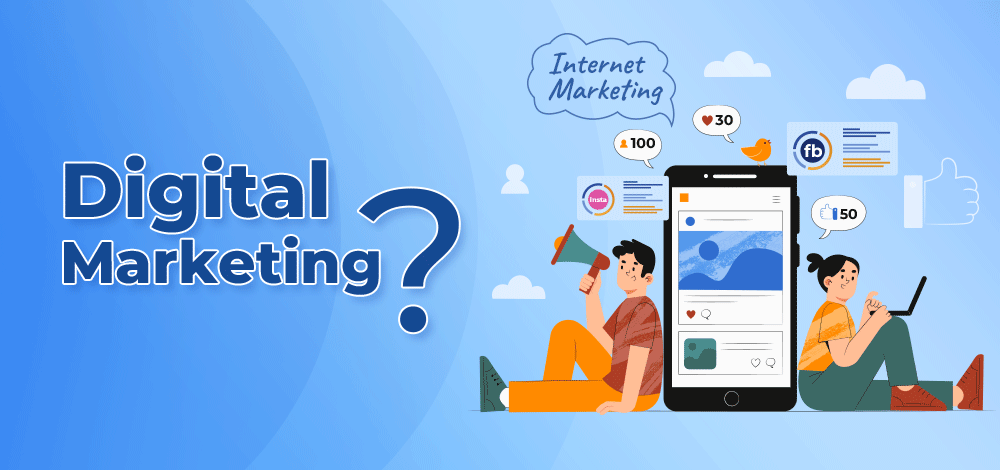
15. FAQs
FAQ 1: How long does it take to see results from digital marketing efforts?
The time it takes to see results from digital marketing efforts varies depending on various factors such as the competitiveness of the industry, the effectiveness of the strategies implemented, and the target audience. It’s important to have realistic expectations and understand that digital marketing is a long-term investment. Generally, businesses can start seeing initial results within a few months, but significant outcomes may take six months to a year or more.
FAQ 2: Is digital marketing suitable for small businesses in Bangladesh?
Absolutely! Digital marketing offers a cost-effective and targeted approach for small businesses in Bangladesh. It allows them to compete with larger competitors on a level playing field. With careful planning and implementation of digital marketing strategies, small businesses can effectively reach their target audience, build brand awareness, and drive conversions.
FAQ 3: What is the average cost of hiring a digital marketing agency?
The cost of hiring a digital marketing agency varies depending on factors such as the scope of services required, the size of the agency, and the experience and expertise of the team. Generally, digital marketing agencies offer packages or customized solutions based on the specific needs and goals of the business. It’s recommended to request quotes and compare the offerings of different agencies to find the one that fits within the budget and aligns with the business objectives.
FAQ 4: Can digital marketing help increase sales and revenue?
Yes, digital marketing can significantly contribute to increasing sales and revenue. By reaching a wider audience, building brand awareness, and implementing effective conversion optimization strategies, businesses can generate more leads and convert them into customers. It’s important to track and analyze the performance of digital marketing campaigns to identify areas for improvement and continuously optimize the strategies for better results.
FAQ 5: Are there any risks associated with digital marketing?
While digital marketing offers numerous benefits, there are also risks involved. Privacy and data security are of utmost importance, and businesses should ensure compliance with data protection regulations. Moreover, the digital landscape is dynamic, and algorithms of search engines and social media platforms can change, affecting the visibility of businesses. It’s important to stay updated, adapt to changes, and diversify digital marketing strategies to mitigate risks.




